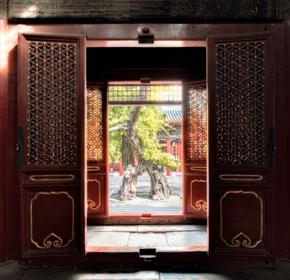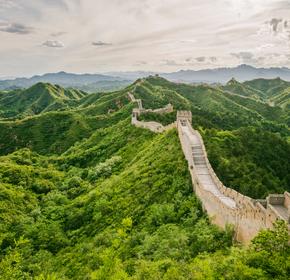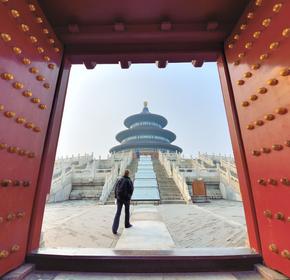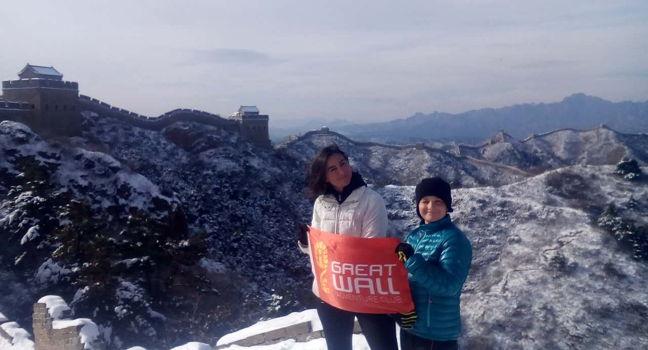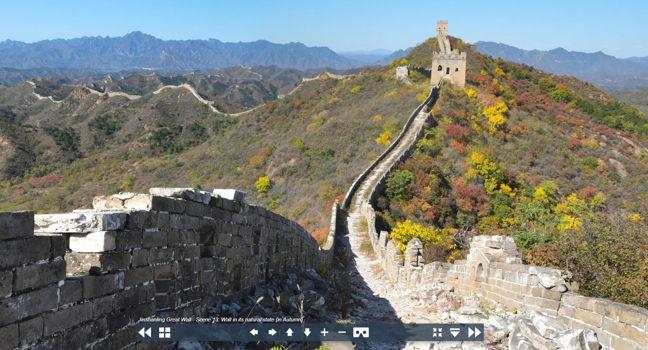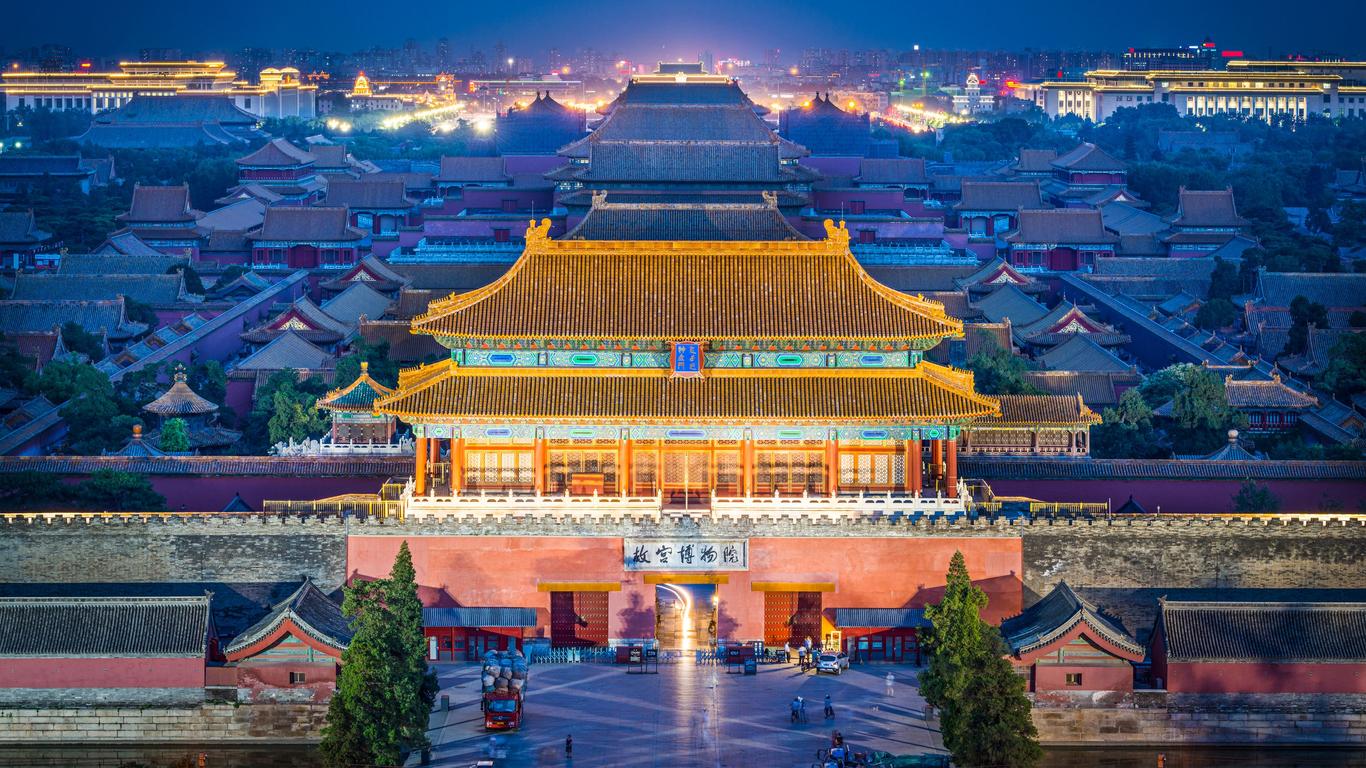
Beijing travel guide
Beijing Tourism | Beijing Guide
You're Going to Love Beijing
From touring ancient palaces to seeing exquisite works of Ming pottery, and from dining at the world's finest Chinese restaurants to hearing up-and-coming Beijing bands, China's capital is a thrilling destination.
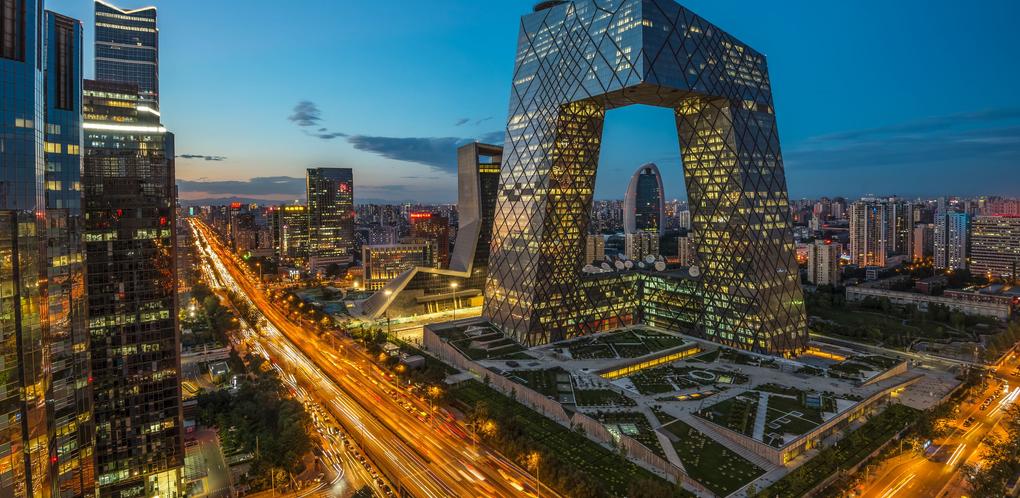
There are stunning historical landmarks like the Forbidden City, superb museums like the National Museum, and sprawling markets like Panjiayuan Flea Market, where you can find all kinds of Chinese antiques, clothes, or craft products.
But what people don't know so well about Beijing is its thriving music scene, with neighborhoods like Tongzhou that are full of music clubs. And there are hidden lavender gardens such as Blues Manor, which become a blissful oasis of serenity during the summer.
Beijing is a city so large, so alive, and so full of energy, that everybody can find something to entertain and inspire them during their vacation.
Top 5 Reasons to Visit Beijing
1. Thousands of Years of Chinese History to Explore
Beijing has been China's capital for over 700 years, and in that time it has accumulated plenty of historical landmarks. The "Forbidden City" (home to the Ming and Manchu imperial rulers) is a famous highlight, but lesser-known gems like the Ming Tombs, the Ancient Observatory, and the cliff houses of Yanqing County are just as fascinating.
2. Magnificent Museums and Art Galleries
Beijing is also heaven for fans of museums and galleries. You could easily get lost in the massive National Museum, but try to escape, as smaller attractions like the enchanting Bee Museum in the Botanical Gardens, and the Aviation Museum are not to be missed. Neither are galleries like the Ullens Center for Contemporary Art or Beijing Commune.
3. Family-Friendly Attractions and Offbeat Amusements
The Chinese capital is also a great place to entertain younger visitors. Amusement parks abound, including Happy Valley, and the aquatic Happy Magic Water Cube. And there are stranger attractions too, like the spooky Underground City that adults and kids alike will enjoy.
4. Delicious Local Delicacies
Chinese food is famous across the world, but the best Chinese chefs can be found in Beijing. During your stay, don't miss the Peking Duck at restaurants like Bianyifang or the Zhájiàng noodles at Yáojì Chǎogān. Every neighborhood has its own gastronomic highlights, so feel free to explore. Beijing is a fantastic place to eat out.
5. Music, Dance, and Many More Cultural Attractions
Catch a show at the Beijing State Opera, head to DJ nights at clubs like Yugong Yishan, or relax with a glass of wine and nod to the jazz at Modernista. Watch Shaolin monks perform kung fu spectaculars at the Red Theater or even more spectacular acrobatics at the Chaoyang Theater. Whenever you travel, there will be cultural delights in store in Beijing.
What to do in Beijing
1. Forbidden City: Time Travel Activated
Surrounded by a large, atmospheric moat from another age, the Forbidden City is at the heart of Beijing. Visitors will discover a vast ensemble of ancient buildings, all miraculously well preserved. For more modern sights, explore everything around Tiananmen Square and its fabulous gate, from the Monument to the People's Heroes to the Mausoleum of Mao Zedong. The country's history is at your fingertips. And don't miss the National Museum and the Center for the Performing Arts.
2. Beihai Park: Green Escape
In the middle of the busy metropolis, this lovely public park with a lake at its center is well maintained. Originally the Imperial Gardens, Belhai Park has been around for nearly 1000 years, but only opened to the public in the 20th century. From Jade Flower Island to the countless pavilions that speckle the landscape, there are endless historical sights to discover on a stroll through the grounds.
3. Great Wall of China: Great. Wall.
Wonder of wonders - the famed Great Wall of China is on everyone's bucket list, and it remains a timeless must-see for visitors to Beijing. Take the day trip north to visit this incredible monument. See the wall snaking through the incredible hillsides for yourself, climb the time-worn but sturdy steps, and march through history along the ramparts.
4. Temple of Heaven: For Good Harvests
Set in a park amidst gorgeous Chinese Gardens, this series of monuments is one of the city's most impressive. The 15th-century buildings harken back to imperial times, but are hardly sinister - the interior is colorful tip to toe and evocative of celebration. The precision of the temples follow strict philosophical principals, and the care put into the the constructions is utterly mind-boggling. History, architecture and faith all come together here.
5. Summer Palace: "The Museum of Royal Gardens"
China's largest royal park is the setting for this gorgeous summer residence, built in the 18th century. Every inch is utterly luxurious, and visitors will find a well-maintained landscape following the norms of traditional Chinese horticulture. Walk through the lush park to find the most exceptional viewpoints. Kunming Lake glimmers from all perspectives, and the lavish artwork adds manmade beauty to it.
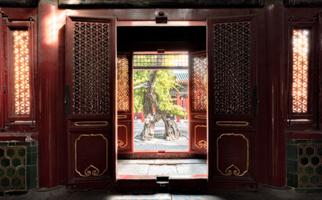
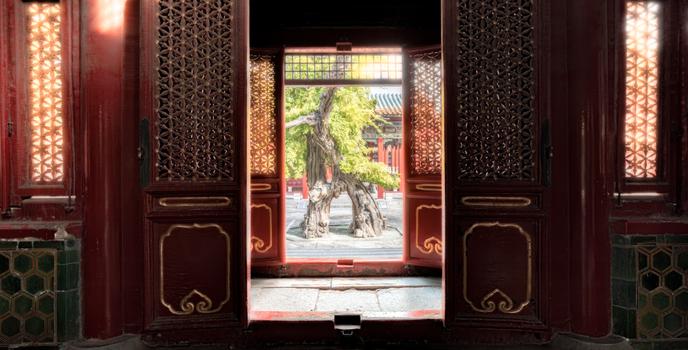
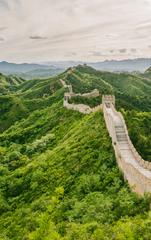
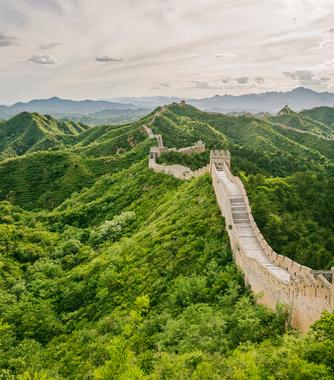


1. Forbidden City: Time Travel Activated
Surrounded by a large, atmospheric moat from another age, the Forbidden City is at the heart of Beijing. Visitors will discover a vast ensemble of ancient buildings, all miraculously well preserved. For more modern sights, explore everything around Tiananmen Square and its fabulous gate, from the Monument to the People's Heroes to the Mausoleum of Mao Zedong. The country's history is at your fingertips. And don't miss the National Museum and the Center for the Performing Arts.
2. Beihai Park: Green Escape
In the middle of the busy metropolis, this lovely public park with a lake at its center is well maintained. Originally the Imperial Gardens, Belhai Park has been around for nearly 1000 years, but only opened to the public in the 20th century. From Jade Flower Island to the countless pavilions that speckle the landscape, there are endless historical sights to discover on a stroll through the grounds.
3. Great Wall of China: Great. Wall.
Wonder of wonders - the famed Great Wall of China is on everyone's bucket list, and it remains a timeless must-see for visitors to Beijing. Take the day trip north to visit this incredible monument. See the wall snaking through the incredible hillsides for yourself, climb the time-worn but sturdy steps, and march through history along the ramparts.
4. Temple of Heaven: For Good Harvests
Set in a park amidst gorgeous Chinese Gardens, this series of monuments is one of the city's most impressive. The 15th-century buildings harken back to imperial times, but are hardly sinister - the interior is colorful tip to toe and evocative of celebration. The precision of the temples follow strict philosophical principals, and the care put into the the constructions is utterly mind-boggling. History, architecture and faith all come together here.
5. Summer Palace: "The Museum of Royal Gardens"
China's largest royal park is the setting for this gorgeous summer residence, built in the 18th century. Every inch is utterly luxurious, and visitors will find a well-maintained landscape following the norms of traditional Chinese horticulture. Walk through the lush park to find the most exceptional viewpoints. Kunming Lake glimmers from all perspectives, and the lavish artwork adds manmade beauty to it.






Activities & attractions in Beijing
Tours
Other activities
Where to Eat in Beijing
Dining out is one of Beijing's most popular activities and greatest attractions. If you are looking for authentic, crispy Peking Duck, look no further than the Liqun Roast Duck Restaurant. You'll find gourmet Xinjiang cuisine at Turpan Restaurant, Sichuan-style delicacies at Zhang Mama, and delectable Beijing-style dumplings at Din Tai Fung. The food will be cheap as well, at around ¥50-100.
When to visit Beijing
Beijing has attractions that can be visited all year round, so there's no bad time to go. However, summer can be stiflingly hot and the air pollution also worsens as the heat rises, so try a spring or fall vacation to enjoy the sights at their best. However, a June break could be ideal. The temperature will be mild and the lavender blooms will be coming into color - a truly beautiful sight.
How to Get to Beijing
Plane
Most visitors from North America touch down at Beijing Capital International Airport, which is around 16 miles northeast of Downtown Beijing. The best transport option is to take the Airport Express train (¥25), which heads straight into town or airport shuttle buses, which cost ¥16. Expect a taxi to come to around ¥90.
Train
If you are traveling to Beijing from Hong Kong or Shanghai, taking the train is a wonderful way to make the journey. China's rail network is modern and reliable, and the scenery can be breathtaking. High-speed trains from the south will arrive at Beijing West Railway Station, which is on subway lines 7 and 9, so it's easy to reach central hotels.
Car
If you have chosen to drive from southern cities like Shanghai, the best road to take is probably G106, which runs from Guangdong and Shenzhen. G102 and G103 run into Beijing from northern cities like Harbin as well, while G108 runs from the southwest part of the country.
Bus
Beijing is a major bus terminus and you can travel there from almost any part of China. Unfortunately, there are 20 different long-distance bus stations dotted across the capital, so check before you travel and plan a route from your arrival point to your accommodation.
Airlines serving Beijing
Where to stay in Beijing
Dongcheng is a great place to look for accommodation, being central and close to all of Beijing's historical attractions. Popular and comfortable hotels in the area include the opulent Grand Hotel Beijing, the Days Inn, and the Hilton Beijing. The Prime Hotel Beijing is a good option near Tiananmen Square, while the JW Marriott Beijing Central is an excellent option in Xicheng. There are also plenty of guest houses all over town, which offer small-scale, affordable accommodation and (usually) very good service.
Popular Neighborhoods in Beijing
Dongcheng - covering the eastern half of Beijing's downtown area, Dongcheng is the main tourist neighborhood. It's home to world-famous attractions like the Forbidden City and Tiananmen Square, features restaurant districts like Dongzhimen, and the many beautiful Buddhist temples of Yonghegong.
Xicheng - the western portion of Beijing's center, Xicheng is almost as appealing for tourists. It's more of a cultural quarter, hosting the People's Theater, the Beijing Youth Palace, and the stunning National Center for the Performing Arts, and is also home to a huge range of museums (and the city zoo).
Chaoyang - where most business gets done in Beijing, Chaoyang is a busy neighborhood that hosted the 2008 Olympics. Aside from the Olympic Village, highlights include the 798 Art Zone, the superb shopping opportunities in Sanlitun, and the iconic CCTV Building.
Where to stay in popular areas of Beijing
Most booked hotels in Beijing
How to Get Around Beijing
Public Transportation
Beijing has an excellent public transportation system. The handiest service is the city subway system, which costs between ¥3 and ¥9 for every journey (with fares rising based on distance). With 17 lines, it covers every inch of the city, but be aware that the subway ends at around 11:15 pm every night. A good idea is to pay a ¥20 deposit to get a prepaid card to use on the subway and buses (where it results in cost savings of 50 percent).
Taxi
Taxis in Beijing tend to be extremely affordable and plentiful, and a great way to travel after the subway closes. Fares start at ¥13, with a charge of around ¥4 per mile, and a waiting charge of ¥2.30 for every five minutes.
Car
Driving in Beijing can be challenging, with regular traffic jams and often erratic drivers, coupled with the need to obtain a provisional Chinese drivers license when you arrive. Once the technicalities have been sorted out, having your own wheels can make it easier to see distant attractions like the Great Wall. You'll find rental companies like Avis and China Auto Rental at the airport and expect to pay around ¥1,000 per day.
The Cost of Living in Beijing
Shopping Streets
Beijing has a massive array of shopping options, ranging from markets like the Silk Market, Panjiayuan Flea Market, or Hong Qiao Market to upscale modern malls like Oriental Plaza that match any in the world. One of the most popular places to head on bargain hunts is Sanlitun Village (where English-speaking retailers are the norm). If you want to buy local artworks, check out the 798 Art District, while antiques fans should definitely find time to peruse the Liulichang Antique Market.
Groceries and Other
Supermarkets in Beijing include familiar names like Walmart, European brands like Carrefour and Auchan, and Chinese companies like Jenny Lou's. Prices are generally very reasonable, at around ¥41 for a gallon of milk or ¥14 for 12 eggs.
